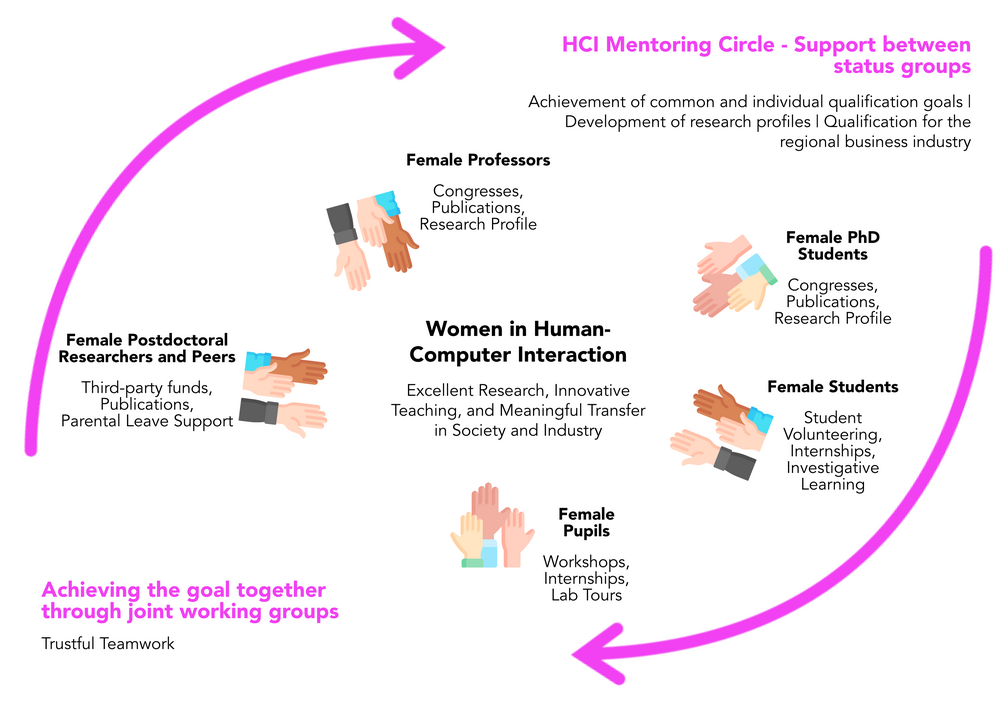HCI Mentoring Circle
The HCI Mentoring Circle describes an informal mentoring program for women in Human-Computer Interaction (HCI). It complements JMU's formal offerings specific to the field of HCI and includes high school student interns, undergraduates, graduate students, postdoctoral fellows, and professors. Scientific studies show that the effects of informal mentoring programs are sustained and effective on career development and psychological functioning (Ragins & Kram, 2007). Moreover, women benefit from informal mentoring (Ragins & Cotton, 1999). The basis for the positive effects is trusting ongoing relationship building and a shared history. Based on these findings, Carolus and Wienrich build a mutual support structure between different status groups. The goal is to understand the individual status groups as links in an interlocking "mentoring chain" and to link them with one another to strengthen cooperation between women in HCI and sustainably increase the proportion of women and create a trusting team atmosphere.
Quotes
Female student:
Prof. Dr. Wienrichs innovative topics got me interested in her research early on. That is why I completed my thesis and my scientific internship during my master's degree. Her support was decisive for me in pursuing my Ph.D.
Female PhD student:
Carolin has always encouraged me to speak up for mysyelf, challenged me individually, and responded to my needs. She helped me achieve my career goals and still does. As a woman in a technical field and a leadership position, she has provided me with technical skills and been a role model for me.
References
Ragins, B. R., & Kram, K. E. (2007). The roots and meaning of mentoring. The handbook of mentoring at work: Theory, research, and practice, 3-15.
Ragins, B. R., & Cotton, J. L. (1999). Mentor functions and outcomes: a comparison of men and women in formal and informal mentoring relationships. Journal of applied psychology, 84(4), 529.



